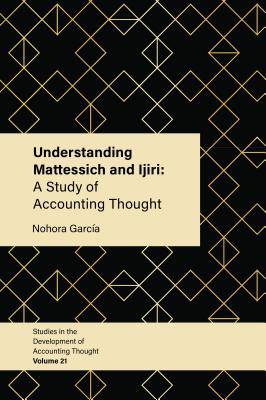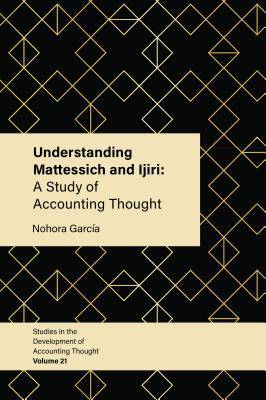
- Afhalen na 1 uur in een winkel met voorraad
- Gratis thuislevering in België vanaf € 30
- Ruim aanbod met 7 miljoen producten
- Afhalen na 1 uur in een winkel met voorraad
- Gratis thuislevering in België vanaf € 30
- Ruim aanbod met 7 miljoen producten
Zoeken
€ 228,95
+ 457 punten
Omschrijving
Richard Mattessich's Accounting and Analytical Methods (1964) and Yuji Ijiri's Theory of Accounting Measurement (1975) are two classic works of American accounting literature written by eminent scholars. Mattessich's work contributed to the debate around the role of accountants in designing systems, and it made a sweeping case for accounting as a management science within an emerging interdisciplinary movement. Ijiri focused on proposing a theory of conventional accounting as an accounting system, which has facilitated accountability among interested parties during five centuries.
Understanding Mattessich and Ijiri takes a 21st-century view of these authors and their work, which was well ahead of its time in the challenges it offered to formidable institutional arrangements. This volume revivifies Mattessich's and Ijiri's emphases on processes and circumstances irreducible to rigorous study, which since the 1960s has been the primary focus of accounting literature, and it re-examines important axiomatic views as foundations for accounting research, views to which both scholars dedicated their early careers. Ultimately, this work examines how their ideas fit with emerging economic theories and technologies which neither could have foreseen, and which now compete for attention when it comes to understanding the intricacy of capital and income measurement.
Understanding Mattessich and Ijiri takes a 21st-century view of these authors and their work, which was well ahead of its time in the challenges it offered to formidable institutional arrangements. This volume revivifies Mattessich's and Ijiri's emphases on processes and circumstances irreducible to rigorous study, which since the 1960s has been the primary focus of accounting literature, and it re-examines important axiomatic views as foundations for accounting research, views to which both scholars dedicated their early careers. Ultimately, this work examines how their ideas fit with emerging economic theories and technologies which neither could have foreseen, and which now compete for attention when it comes to understanding the intricacy of capital and income measurement.
Specificaties
Betrokkenen
- Auteur(s):
- Uitgeverij:
Inhoud
- Aantal bladzijden:
- 288
- Taal:
- Engels
- Reeks:
- Reeksnummer:
- nr. 21
Eigenschappen
- Productcode (EAN):
- 9781787148420
- Verschijningsdatum:
- 16/11/2017
- Uitvoering:
- Hardcover
- Formaat:
- Genaaid
- Afmetingen:
- 152 mm x 231 mm
- Gewicht:
- 521 g

Alleen bij Standaard Boekhandel
+ 457 punten op je klantenkaart van Standaard Boekhandel
Beoordelingen
We publiceren alleen reviews die voldoen aan de voorwaarden voor reviews. Bekijk onze voorwaarden voor reviews.








